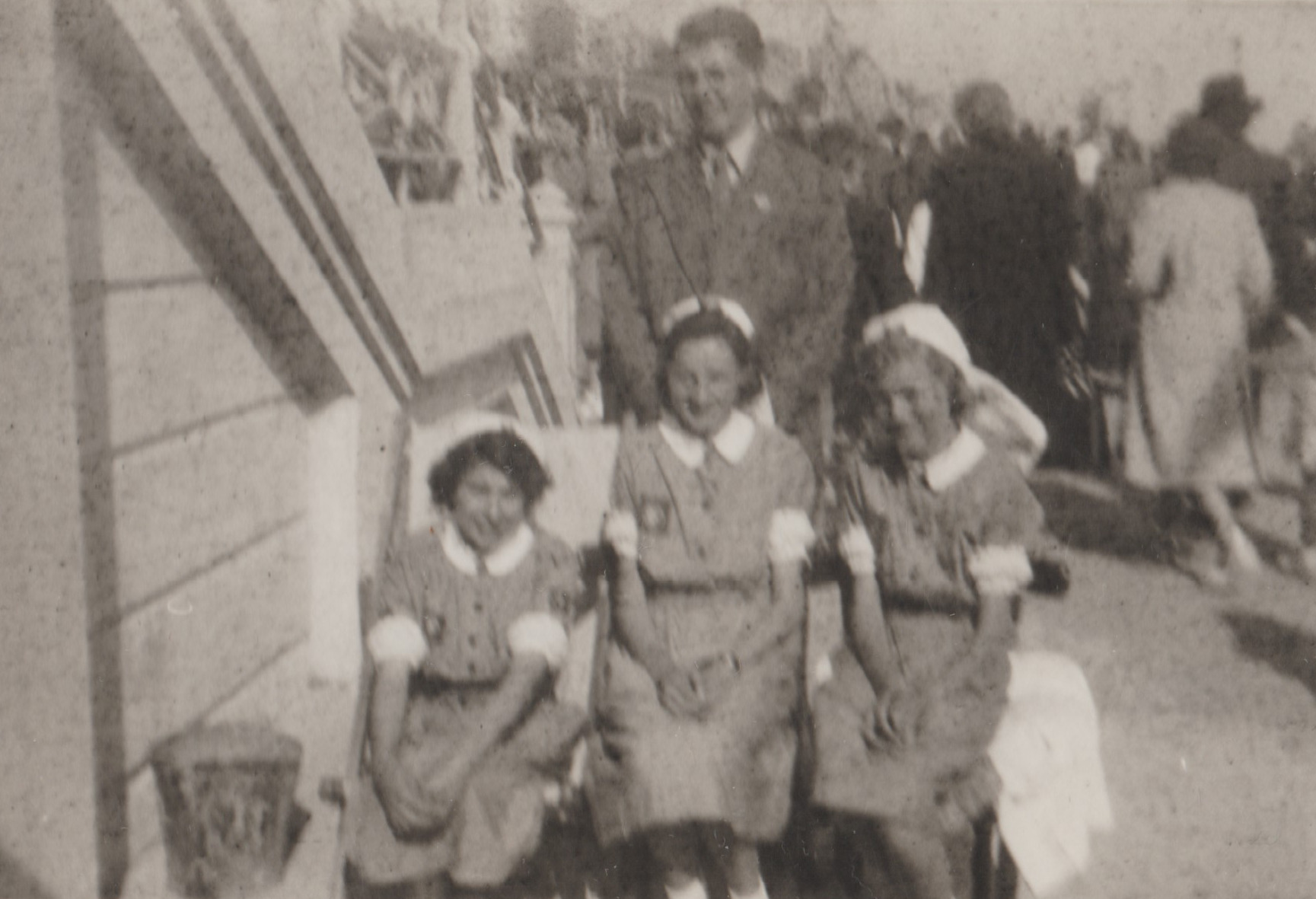Transcript
You didn’t go on duty without an adult. There would always be an adult on that duty. I know at one time I was on duty at the beach hut, as it was called, and there was always an adult, a male adult, male and female one was with you as well. And somebody had come running down to say that somebody on the pier was having a fit, could we come? So the man adult, I forget his name – there were two boy Cadets. They were older than me, in their late teens, he said to them, “Well, would you go up, take the stretcher? Would you go up to the pier and bring this fella down?” And the nurse said to me, “You go with him too,” you know, because I was so – I suppose about twelve or something like that, “You go with him too and they might need help.” Anyway, off we marched and we got up there and this chap was vomiting and, anyway, the boys got him on the stretcher and of course coming back down there’s a lot of steps to get down to the beach hut. And well, these two boys, to carry somebody on a stretcher, you know, was – so one of the boys said to me, “Would you go and tell the policeman?” There was a policeman, in those days, in the middle of the road controlling the traffic. “Would you go over to the policeman and ask him if he can come and help us?” I went out through the cars and to the policeman, “Please could you come and help us? The boys have got to get a man down on a stretcher?” He said, “Oh yes, okay.” So he left his post, left the traffic to sort themselves out. “Yes,” he said, and he came along and because he was stronger and taller he was able to take the front so that they could keep the stretcher, you know, straight.
When you went on duty you were reliant on the adults that were on duty. Some of them, especially at the beach hut because that’s the one we used to do most, if it was something quite simple they’d let you do it but most of them were very, “Well, you’re only a Cadet. You won’t know what to do,” kind of thing, you know, and I know this – Reenie Dunk, I think her name was, she was on duty and this lady came in with – I don’t know, she’d fallen down or something and she just had a graze and that and blood on her leg. You know, it was quite simple and so I suppose Reenie knew that and she said to me, “No, you’re going to do this one.” So, you know, she watched and you only had to clean the wound and then, lovely, bandage her again, you know, and while I bandaged her, Reenie went off. She knew, she could see that I was doing all right and that lady, I remember that lady too because after I’d done it she said, “Thank you very much,” then she put her hand in her pocket and she gave me a bar of chocolate. You know, in the 1940s sweet rationing was still on and a bar of chocolate all to myself. I must take this home and show the family!


